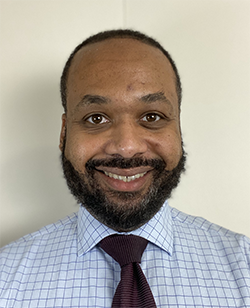Gilchrist Focuses on Trauma-informed Care Education on World Diversity Day
May 21 is World Day for Cultural Diversity for Dialogue and Development

Trauma is a painful and nearly universal part of the human experience. An estimated 70 percent of adults have experienced some type of traumatic event in their lifetimes. The Substance Abuse and Mental Health Services Administration defines trauma as “an event, a series of events, or set of circumstances experienced by an individual as physically or emotionally harmful, or life-threatening, with lasting adverse effects.”
Trauma can be caused by community violence, racism, poverty, and abuse, among many other factors. Those who live and work in Baltimore City and other counties in our service area where neighborhood violence, substance abuse and poverty is commonplace may be especially familiar with trauma.
Our Gilchrist Diversity, Equity and Inclusion Council was watching the actions of the Baltimore City Council as they prepared to pass a comprehensive bill to address some of the large-scale trauma present within the city’s population. When the Elijah Cummings Healing City Act was passed into law, we wanted to explore ways to address trauma and how it relates to the patients, families and communities within Gilchrist’s service area.
As part of our Diversity Day activities, Gilchrist invited Nathan Irvin, MD, Carol Vidal, MD, MPH and Phillip Leaf, PhD from the Johns Hopkins University to present to our employees about trauma-informed care. They are leaders in the field of trauma and provide support and insights both locally and nationally. We are very grateful that they are providing this service and training for our community.
How is Trauma-informed Care Connected to World Diversity Day?
World Day for Cultural Diversity for Dialogue and Development was started by the United Nations to promote cultural diversity. It’s a day to celebrate the world’s cultures and the significant ways diversity can lead to inclusion and positive change. Trauma-informed care is relevant to Diversity Day on two fronts. One is educational. The UN wanted to promote cultural awareness and understanding between various communities and nationalities.
The other aspect is more humanitarian. Diversity Day provides us with an opportunity to deepen our understanding of the values of cultural diversity and to promote human rights, fundamental freedoms and sustainability.
Educational Aspects
Trauma-informed care is educational because it a learning experience that relates to patients and families in our catchment area. Trauma impacts people in every demographic and group. With the pandemic, the world itself has been connected through a joint trauma. The world has also been connected through the normalization and increased use of virtual care and work. The world is literally at our fingertips.
Humanitarian Aspects
Being trauma informed can improve the care and support we offer patients, families and communities. Through affirming care provided by a trauma-informed team, longstanding cultural rifts and hesitancy held toward the health care field among some communities of color can be healed. Understanding the effects of trauma can also help our employees approach each other with more sensitivity and empathy.
We at Gilchrist are a community of healers, caregivers and supporters who have touched many patients and families. I believe that when good relationships of trust and trauma-informed compassion are formed between health care organizations and marginalized communities, then distrust or fear directed toward health care can start to be undone.
Gilchrist is a community with true hearts of gold. If there is a health care organization that can change hearts and minds, it’s Gilchrist, it’s us.
To learn more about Gilchrist, visit gilchristcares.org. To support our work, visit gilchristcares.org/give.


